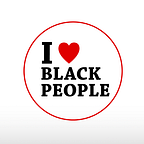Africa: Highly Skilled Labor Migration
The migration of highly educated or skilled people is a critical, controversial, and difficult subject. It is critical because it involves the transfer of human capital, which is key to economic growth and poverty reduction. It is controversial because, in many cases, the transfer takes place from countries suffering from scarcity of such resources to countries enjoying relative abundance. It is difficult to analyze because the general lack of data means that neither the causes nor the impacts of the phenomenon are well understood.
A high level of skilled migration is rarely the root problem but rather a symptom of a myriad other development problems. Without properly addressing various policy challenges — in education, labor and financial markets, healthcare, and public finance — efforts to design mechanisms to harness the benefits and minimize the costs of skilled migration will not be fully effective.
Although the emigration rate for tertiary-educated workers is high in many African countries, rates vary considerably across countries. High skilled migration rates are particularly high in small, low-income, and conflict-affected countries. The low levels of human capital in many African countries amplify the impact of high-skilled migration. Rather than trying to stem migration, African governments and policymakers should focus on increasing education and skill levels and establishing an environment in which high-skilled workers have productive opportunities at home.
Tertiary-educated migrants from different African countries exhibit vast differences in terms of their performance in the destination countries’ labor markets. These differences reflect language ability, the quality of education in origin countries, and the speed of integration in destination-country labor markets. The performance of tertiary educated migrants is important for the overall development impact of skilled migration because it affects their potential to send remittances and generate other positive diaspora externalities.
Shifting educational resources to less-sophisticated degree programs (for example, training physicians’ assistants rather than doctors) could increase the supply of workers trained to provide services that are in short supply in underserved areas while also reducing the ability of trainees to find employment in destination countries. However, such policies should be implemented based on the country’s need for the right mix of specialists and lower-skilled workers, not the implications for high-skilled emigration.
Requiring students to perform public service for a moderate period of time (since more onerous requirements are likely to encourage emigration and discourage return) and to pay for a portion of the cost of their education while providing performance-based subsidies to some students could increase the benefits of higher education while limiting the fiscal losses from high-skilled migration.
Restrictions on the emigration of high-skilled professionals infringe on civil liberties; may not deter emigration, given the strength of incentives to emigrate; and discourage return. Incentives to return may be ineffective, may be provided to migrants who would have returned in any event, and may engender resentment from workers who never migrated. Removing restrictions on the recognition of foreign qualifications and experience could encourage return.
Taxation of potential emigrants may prove difficult to enforce, as it would require the cooperation of destination-country governments that derive great benefits from high-skilled emigration. Destination countries might consider providing financial and technical assistance to origin countries’ educational programs, provided that such aid does not replace existing programs. An option worth considering involves getting hiring institutions (whether public or private) to open training facilities in Africa.
Join on www.iloveblackpeople.com We are building a global network to help protect Black people from the harm & humiliation of racism & xenophobia, especially while traveling and in a new environment. Our Goal is to cover Black Owned & Black Friendly businesses in 200 Cities across the world. Recommend A Business in your area today.
Adapted from the Report: LEVERAGING MIGRATION for AFRICA by World Bank
